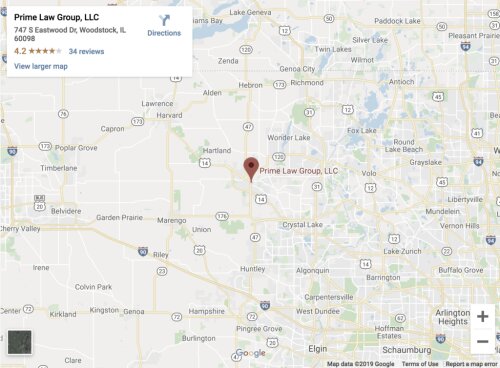Best Job Discrimination Lawyers in Alabama
Share your needs with us, get contacted by law firms.
Free. Takes 2 min.
Or refine your search by selecting a city:
List of the best lawyers in Alabama, United States
About Job Discrimination Law in Alabama, United States
Job discrimination happens when an employer treats an employee or job applicant unfavorably or differently based on characteristics such as race, color, religion, sex, national origin, age, disability, or genetic information. In Alabama, as in the rest of the United States, federal and state laws are designed to help protect workers from various forms of employment discrimination. These laws cover hiring, firing, promotions, pay, job assignments, training, benefits, and other conditions of employment. Understanding how these protections apply in Alabama is crucial for anyone who believes they may have experienced unfair treatment at work.
Why You May Need a Lawyer
A lawyer with experience in job discrimination law can help you navigate complex legal processes and protect your rights. Common situations where people seek legal help for job discrimination include being wrongfully terminated due to protected characteristics, facing harassment or a hostile work environment, being denied promotions, experiencing retaliation for reporting discrimination, or not being accommodated for disabilities or religious beliefs. A legal professional can help determine if you have a valid claim, gather and present evidence, represent you in negotiations with your employer, or take your case to court if necessary.
Local Laws Overview
While Alabama does not have a broad state anti-discrimination statute that applies to private employers, workers are protected under federal laws such as Title VII of the Civil Rights Act, the Americans with Disabilities Act, the Age Discrimination in Employment Act, and others. The Alabama Age Discrimination in Employment Act does provide some additional protections for workers aged 40 and older. Federal law applies to most employers in Alabama, especially those with 15 or more employees. The Equal Employment Opportunity Commission (EEOC) enforces many of these federal laws in Alabama. Some local government employees may also have protections under local ordinances or personnel rules.
Frequently Asked Questions
What types of discrimination are illegal in Alabama workplaces?
In Alabama, it is illegal under federal law to discriminate against an employee or job applicant on the basis of race, color, religion, sex (including pregnancy and gender identity), national origin, age (if 40 or older), disability, or genetic information.
Does Alabama have its own anti-discrimination laws?
Alabama does not have a comprehensive state law that covers all types of job discrimination for private-sector employees. Most job discrimination cases in Alabama are handled under federal law.
Which federal laws protect me from workplace discrimination?
Key federal laws include Title VII of the Civil Rights Act, the Americans with Disabilities Act (ADA), the Age Discrimination in Employment Act (ADEA), and the Genetic Information Nondiscrimination Act (GINA).
What is the process for filing a job discrimination complaint in Alabama?
Most claims start by filing a charge with the Equal Employment Opportunity Commission (EEOC). You generally must file within 180 days of the alleged discrimination. The EEOC will investigate and may mediate, resolve, or permit you to pursue a lawsuit.
Can my employer retaliate against me for reporting discrimination?
No. Both federal and state law protect you from retaliation for filing a discrimination complaint, participating in an investigation, or otherwise asserting your rights.
Are all employers in Alabama covered by these laws?
Most employers with 15 or more employees are covered by federal anti-discrimination laws. Age discrimination law applies to employers with 20 or more employees. Independent contractors and small employers may not be covered in some cases.
Do I need evidence to file a discrimination claim?
While you do not need to have all evidence before filing a claim, supporting documentation such as emails, performance reviews, or witness statements can strengthen your case.
Can I sue my employer directly for discrimination?
Usually, you must first file a charge with the EEOC or a comparable state agency before you can file a lawsuit in court. You will be issued a Notice of Right to Sue after the investigation, which allows you to proceed with litigation.
What remedies are available if I win a discrimination case?
Possible remedies include back pay, reinstatement, hiring, promotion, compensatory damages, punitive damages (in some cases), and payment of attorney’s fees and costs.
How long do I have to act if I think I have been discriminated against?
You typically must file your claim with the EEOC within 180 days of the discriminatory act, so it is important to take action promptly.
Additional Resources
- Equal Employment Opportunity Commission (EEOC): Main federal agency enforcing workplace anti-discrimination laws. - Alabama Department of Labor: Offers information on worker rights and guidance on employment issues. - Local legal aid offices: Can provide free or low-cost legal advice based on income qualification. - Private employment law attorneys: Many lawyers offer consultations for employment-related claims. - Human Resources departments: Larger employers often have processes for reporting workplace discrimination internally.
Next Steps
If you believe you have experienced job discrimination in Alabama, start by documenting any incidents and gathering evidence. Review your employer’s policies for reporting discrimination and consider speaking to your human resources department. File a complaint with the Equal Employment Opportunity Commission (EEOC) as soon as possible to preserve your rights. If you are unsure of your options or need help with the process, contact a qualified employment law attorney in Alabama who can explain your rights and represent your interests. Legal aid organizations and government agencies can also provide guidance or direct you to additional resources. Taking prompt action is important because time limits for filing a claim are short.
Lawzana helps you find the best lawyers and law firms in Alabama through a curated and pre-screened list of qualified legal professionals. Our platform offers rankings and detailed profiles of attorneys and law firms, allowing you to compare based on practice areas, including Job Discrimination, experience, and client feedback.
Each profile includes a description of the firm's areas of practice, client reviews, team members and partners, year of establishment, spoken languages, office locations, contact information, social media presence, and any published articles or resources. Most firms on our platform speak English and are experienced in both local and international legal matters.
Get a quote from top-rated law firms in Alabama, United States — quickly, securely, and without unnecessary hassle.
Disclaimer:
The information provided on this page is for general informational purposes only and does not constitute legal advice. While we strive to ensure the accuracy and relevance of the content, legal information may change over time, and interpretations of the law can vary. You should always consult with a qualified legal professional for advice specific to your situation.
We disclaim all liability for actions taken or not taken based on the content of this page. If you believe any information is incorrect or outdated, please contact us, and we will review and update it where appropriate.
Browse job discrimination law firms by city in Alabama
Refine your search by selecting a city.












